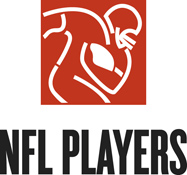 The NFL’s Collective Bargaining Agreement (CBA) expires after the 2010 season, and among other points up for debate–including revenue sharing and a rookie pay scale–the NFLPA may want to push for a new anti-doping policy whose disciplinary measures don’t effectively make League Commissioner Roger Goodell judge, jury and executioner all at once.
The NFL’s Collective Bargaining Agreement (CBA) expires after the 2010 season, and among other points up for debate–including revenue sharing and a rookie pay scale–the NFLPA may want to push for a new anti-doping policy whose disciplinary measures don’t effectively make League Commissioner Roger Goodell judge, jury and executioner all at once.
U.S. District Judge Paul Magnuson’s decision on Friday to uphold a District Court order temporarily restraining the League’s suspension of five players (Kevin Williams and Pat Williams of the Minnesota Vikings and Charles Grant, Deuce McAllister and Will Smith of the New Orleans Saints) for allegedly violating its drug policy surprised many observers who expected that a federal court especially was likely to interpret the matter under the bright-line language of the CBA and hold in favor of the League. Numerous apparent discrepancies in the League’s handling of the matter, however–including possibly withholding material information from players relating to the supplement at hand, StarCaps, a weight-loss substance containing the banned diuretic bumetanide; supposedly failing to respond to players’ inquires about the supplement through its supplement/drug hotline; and finally waiting months (the samples in question were from this summer) to announce the results of the tests and then implementing the corresponding suspensions late in the season, thereby implicating salaries and the playoff push–have apparently made the case a bit murkier than it first appeared. Judge Magnuson stated that he will need “more time to fully and carefully consider all of the briefs, arguments, and cases put before him,” and some pundits expect that the case will not fully be completed until early next year–possibly even after the Super Bowl.
Mike Florio at ProFootballTalk.com nicely lays out the hurdle the players will have to clear in the coming days/weeks/months in order for the Court to completely dismiss their suspensions and fines:
Typically in matters of this nature, the plaintiffs must prove that they will suffer “irreparable harm” if the defendant isn’t blocked from doing whatever it is that the defendant plans to do. The defendant in such cases usually responds by arguing that, since the plaintiffs can later recover a monetary award to compensate them for their lost wages and other damages, their available remedies are adequate and ”equitable relief” (e.g., telling a party that it can’t do something that it wants to do) isn’t appropriate.
In other words, the NFL will argue in this case that, because the players can later recover cash money from the league if it turns out that the suspensions violated their legal rights, there’s no need to stop the league from suspending them.
In this type of case, however, where NFL players have only so many seasons during which they can play NFL football and where that lost 25 percent of one season will never return, the argument in favor of a finding of irreparable harm might be stronger than most cases involving actions to be taken against employees.
The real battleground in this case could be the requirement that, in order to obtain an injunction pending the outcome of the litigation, the players must prove that they have a strong likelihood of eventually winning the case. The NFL surely is arguing strenuously that the legal theories advanced by the players are not valid, because the only potential legal claim that can be made in this case is that the NFL violated the Collective Bargaining Agreement and/or the steroids policy.
Regardless of the outcome, the lawsuits in question (both the above-named players and the union are suing the NFL) present serious questions about the implementation of the League’s drug policy. Moreover, the fact that the cards have been stacked against the players from the get-go, and that the League felt reasonably sure that it could waltz into Federal Court and have its way (it still may), is indicative of just how much control the NFLPA lost to the League in regards to disciplinary measures during their negotiations (the steroids policy, while not part of the CBA, was also the product of collective bargaining). As columnist Patrick Reusse of the Minneapolis Star-Tribune pointed out this week:
“Any union worth its salt would have hung tough in negotiations to create a disciplinary panel — one representative from management, one from the players and a neutral party — to decide these matters.
Gene Upshaw never fought that fight in his time as union chief. He ceded the authority to the commissioner, and now the players find themselves with Roger Goodell running amok and robbing their paychecks at every turn.”
Finally, given the NFLPA’s own lawsuit against the NFL in the matter, tensions are now even higher between the two sides in regards to their impending CBA negotiations. Goodell has seemingly had a good time flaunting his disciplinary authority so far, and his objective to polish up the League’s image is probably a virtuous one. That said, draconian hubris has a way of unfolding over time. Friday’s decision could be just the start.